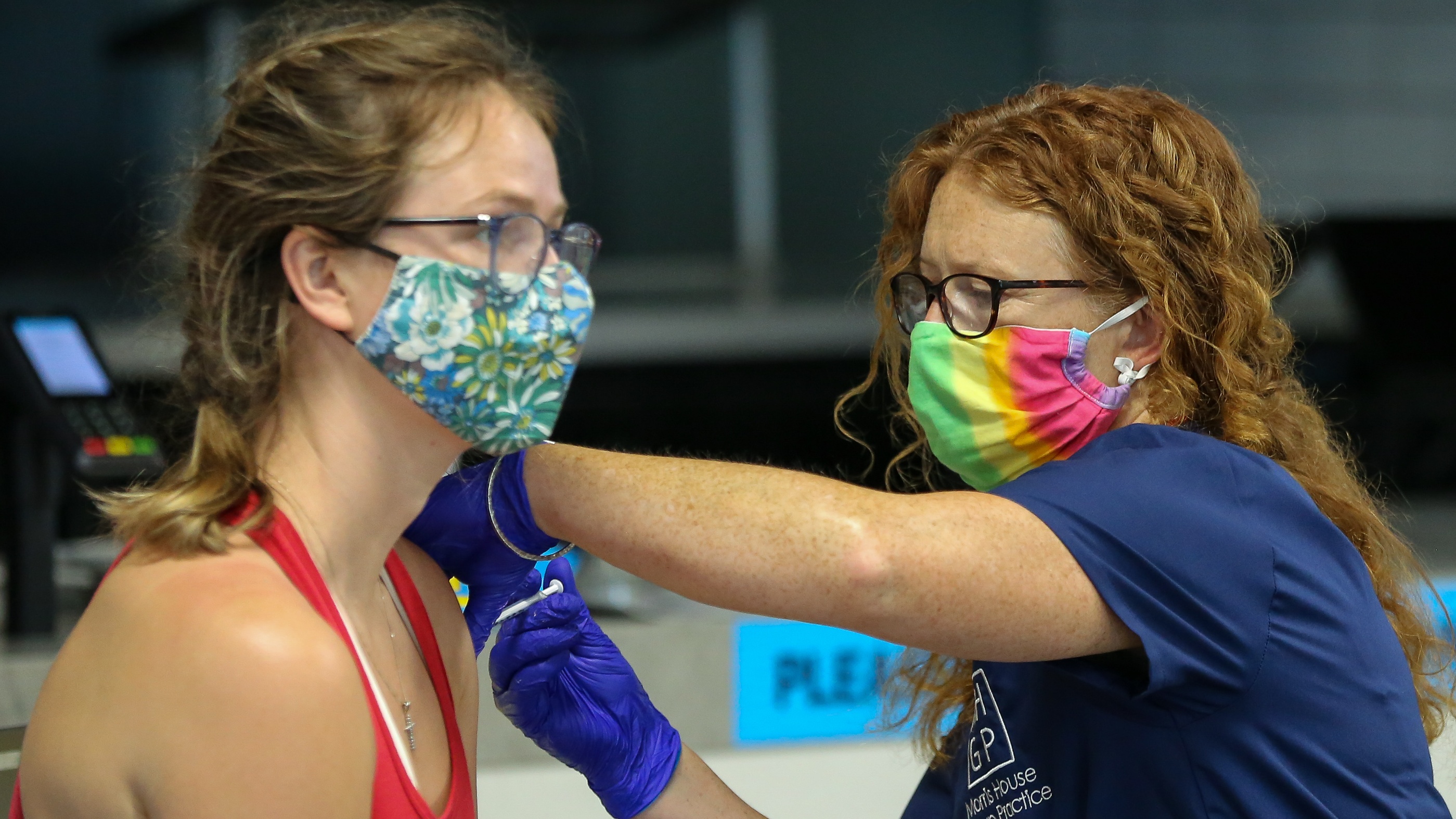Everything you need to know about Covid booster vaccines
Boris Johnson calls for more people to get third jab after string of record-breaking days

A free daily email with the biggest news stories of the day – and the best features from TheWeek.com
You are now subscribed
Your newsletter sign-up was successful
Countries scrambling to prevent fresh Covid-19 outbreaks driven by the Omicron variant have been offered hope by a UK study that found booster jabs “massively” strengthen the body’s defences against the coronavirus.
The research showed that a third dose “not only increased antibody levels 30-fold but roughly tripled levels of T-cells”, The Times reported, referring to the “part of the immune system that experts believe could be the critical weapon against the heavily mutated Omicron strain”.
“This T-cell response gives us hope,” said Professor Saul Faust, who led the Cov-Boost trial, outlined in a newly published paper in The Lancet. Although Omicron was not analysed during the research, data suggests the triggered T-cells “are recognising a much broader range of antigens that might... be common to all of the variants”, he explained.
The Week
Escape your echo chamber. Get the facts behind the news, plus analysis from multiple perspectives.

Sign up for The Week's Free Newsletters
From our morning news briefing to a weekly Good News Newsletter, get the best of The Week delivered directly to your inbox.
From our morning news briefing to a weekly Good News Newsletter, get the best of The Week delivered directly to your inbox.
Faust and his team measured immune responses in nearly 3,000 people who received one of seven Covid-19 boosters or a control jab, two to three months after getting a second dose of either the AstraZeneca or Pfizer vaccine.
Trial participants boosted with Pfizer following two doses of AstraZeneca “had antibody levels a month later nearly 25 times higher than controls”, The Guardian reported. When Pfizer was used for all three jabs, antibody levels rose more than eightfold.
But the “most potent booster” was found to be the Moderna vaccine, with a full dose raising antibody levels 32-fold in the AstraZeneca group and 11-fold in the Pfizer group.
The findings also suggest that “booster programmes could switch to half-doses of the Pfizer vaccine without losing much protection”, the newspaper added. Moderna is already used at half-dose as a booster.
A free daily email with the biggest news stories of the day – and the best features from TheWeek.com
The results are seen as vindication of Britain’s decision to press ahead with a mass booster campaign using Pfizer and Moderna jabs.
The campaign comes amid growing fears about the potential threat posed by Omicron. One major concern is that the variant “has a large number of mutations in the spike protein that the virus uses to latch on to and break into cells”, The Times explained. “This may mean that antibodies, which bind to the spike to prevent new infections, work less well.”
However, the new research suggests that T-cells, which destroy infected cells and are believed to guard against more severe Covid cases, is better at recognising the spike, making them less sensitive to mutations.
“Our hope as scientists is that protection against hospitalisation and death will remain intact,” said study leader Faust, director of the NIHR Clinical Research Facility at University Hospital Southampton NHS Foundation Trust.
Health Secretary Sajid Javid said the research “clearly shows why it so important to get your booster – the top-up jab will massively drive up your protection against the virus”.
“With the possible threat of the Omicron variant, it is more important than ever to get vaccinated,” he added.
A total of 42 Omicron cases had been confirmed across the UK as of yesterday.